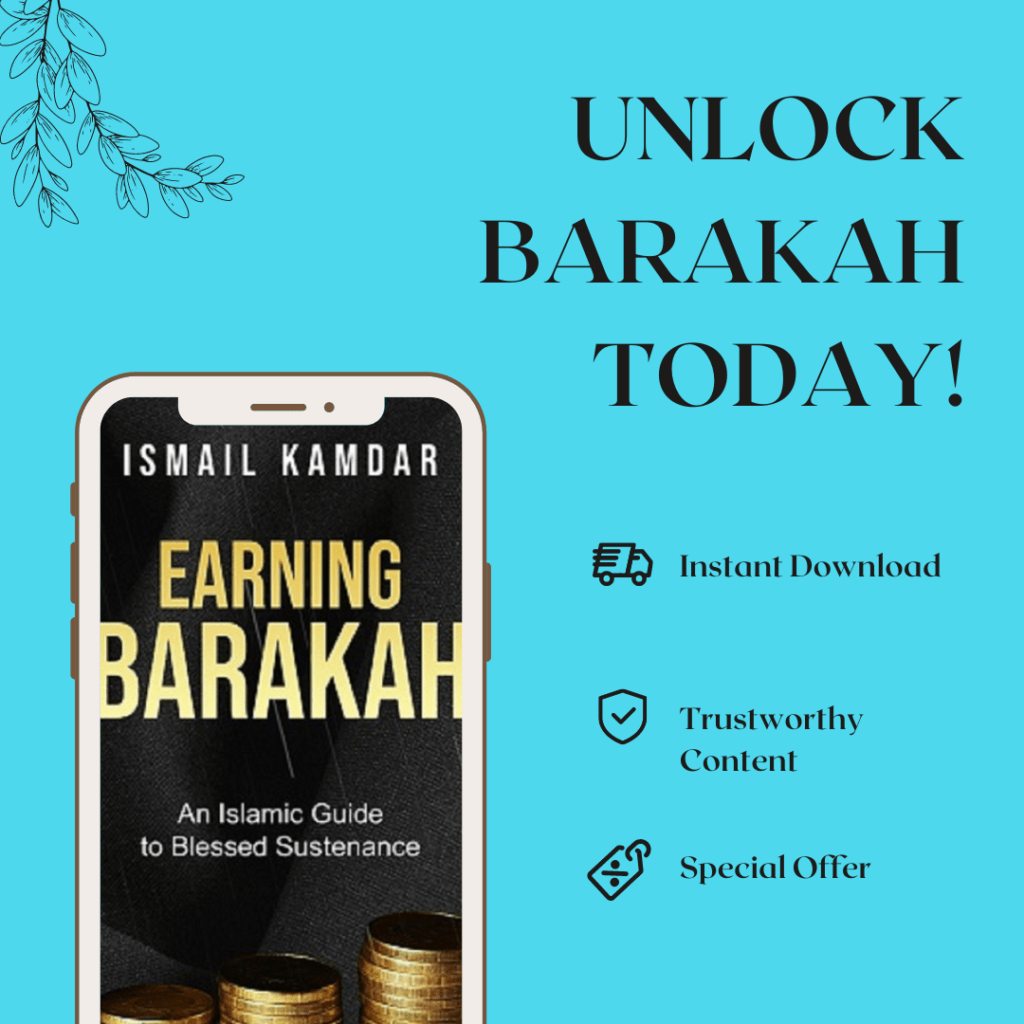In the name of Allah, Most Gracious, Most Merciful.
This is the first in a series of articles on Islamic chivalry. During my research on Islamic masculinity, I discovered that most classical works on this topic focused on futuwwah (chivalry) instead. Imam Dawud Walid defines futuwwah as follows:
Futuwwah cannot be simply defined operationally speaking, as although it is loosely translated as spiritual, chivalry in the English language is defined as characteristics of a distinguished gentleman or a knight who displays courage, honour, courtesy, justice, and a readiness to help the weak.
Futuwwah and Raising Males into Sacred Manhood, Dawud Walid, p. 1
For sake of ease, we will use the English term chivalry interchangeably with futuwwah in this series. Over the past few months, I have compiled a list of over 100 qualities of futuwwah from classical Islamic texts. I am currently organizing these traits into subcategories and will publish each category as a article here.
This first article focuses on traits related to work ethic. In an age of materialism and get-rich-quick-schemes, the importance of having a strong work ethic has been lost. The 10 principles listed below are core Islamic principles related to developing a strong work ethic. Each principle has been listed with one evidence from the Qur’an or Sunnah. There are in reality dozens of evidences for each of these points.
Know that your Sustenance is from Allah
The Messenger of Allah ﷺ said, “Be moderate in seeking from the world, for everyone will be facilitated towards what has been decreed for him in it.”
Bayhaqi 10501, Grade: Sahih
Rizq (sustenance) is already destined by Allah. He has already written the amount that each servant will earn per day, month, year, and overall lifespan. There is nothing we can do to change this amount. Our actions simply affect whether our sustenance is blessed or cursed. The means of attaining our sustenance is in our control. If we seek it through prohibited means, it will testify against us on the Last Day. If we seek it through permitted means and spend it in a way that is pleasing to Allah, then it will testify for us on the Last Day.
A Muslim man should avoid stressing about wealth and the future. He should accept that his destiny is already written and should focus instead on earning barakah (blessings) in his sustenance. By freeing up the heart from anxiety about the future, we make space for the remembrance of Allah and preparation for the Afterlife.
Work hard for your sustenance anyway
The Messenger of Allah ﷺ “Verily, the most wholesome food a man can eat is that which he has earned.”
Nasa’i 4397, Grade: Sahih
Our sustenance is written but nobody knows the unseen besides Allah. We are still required to work for our sustenance, just as the birds leave their nests seeking it every morning. The Muslim man is obligated to seek out his sustenance in a halal manner so that he can fulfill his role as provider and protector of his family.
Working hard is part of Ihsan (aspiring for excellence) and a noble trait. A Muslim man works hard, even though he knows that his sustenance is destined, because it is part of manliness and good character. A hardworking man is a strong asset to the ummah and earns a good reputation among others. His hard work can be an act of worship when it is done in a way that is pleasing to Allah and within the boundaries set by Allah.
Have firm tawakul and trust Allah’s plan
“Whoever fears Allah, He will make a way out for him and provide for him from where he never imagined. And whoever has tawakul in Allah, He is enough for him.”
Quran 65:2-3
A believer must firmly acknowledge that Allah knows best. Allah’s plan is best for us even when we cannot see the benefit in our current situation. Like Jonah in the belly of the whale, and Joseph at the bottom of the well, we must turn to Allah and trust Allah’s plan for us. The believer maintains full optimism in Allah regarding his future, knowing that whatever happens to him is best for him.
We have published a detailed guide to tawakul in the past, you can read it here. To summarize, tawakul means to believe, acknowledge, trust, and ask of Allah, while working hard and being content at the end of each day. This is part of the character of the Muslim that every believer should strive for.
Ask only of Allah and seek only from Allah
The Prophet ﷺ said, “Young man, I will teach you some words. Be mindful of Allah and He will protect you. Be mindful of Allah and you will find Him before you. If you ask, ask from Allah. If you seek help, seek help from Allah.”
Tirmidhī 2516, Grade: Sahih
Although it is permitted to ask people for assistance in matters that they can help with, it is part of higher Islamic character to ask only Allah and seek assistance only from Allah. Some of the pious predecessors were so staunch on this point that even if they dropped a stick while riding a horse, they would rather get off and pick it up, than ask someone for help.
When we ask people for help often, it lowers our value in their eyes. They start to look at such a person as a burden to society and a beggar. But Allah loves when we ask and never tires of giving. Part of chivalry is to avoid asking people for assistance, and to rely on Allah entirely. A result of this is that Allah will send such people into your life that will assist you anyway, and you will maintain your dignity in the process.
Avoid shortcuts and shady transactions
The Prophet ﷺ said, “Make between yourself and the unlawful a buffer of what is lawful. Whoever does so will clear himself in regard to his honor and his religion.”
Ibn Hibban 5569, Grade: Sahih
The modern trend of seeking get-rich-quick schemes is unislamic. Hastiness is a devilish quality that will seduce a person to seek shortcuts on the path to riches. Such a man will be tempted to engage in clear prohibitions like usury and selling prohibited products, or to take shady shortcuts through false advertising and mistreatment of employees.
A Muslim is firm in his belief that whatever Allah has written for him will reach him. With this firm faith, he works hard, takes his time, and stays within the boundaries of permissibility. He knows that nothing will miss him that was meant for him, so he focuses on the quality of his work, and turns away from all sources of temptation.
Be content with your sustenance
The Prophet ﷺ said, “Allah tests His servant by giving to him. Whoever is content with what Allah has apportioned for him, Allah will bless him in it and expand it. Whoever is not content, he will not be blessed in it.”
Musnad Imam Ahmad 20279, Grade: Sahih
Greed leads to decrease in blessings, while contentment and gratitude lead to increase in blessings. Every day, the Muslim man works hard to provide for his family. At the end of each day, he is content with his sustenance for the day and thanks Allah for it. This contentment allows him to focus on worshiping Allah, contributing to the ummah, and spending time with his family.
Anxiety about wealth and profits distract a man from the worship of Allah. Greed for a second mountain of gold turns into obsession. A greedy man is never satisfied, and his mind is so preoccupied with the pursuit of wealth that he fails to prioritize anything else. The believer avoids this trial by working hard during work hours, then devoting the rest of his time to worship, rest, community, and family. Balance and contentment are far more precious than a second mountain of gold.
Be happy for others when they do well
The Prophet ﷺ said, “Be servants of Allah as brothers. Do not be hostile to each other and do not hate each other. Follow the right course, seek nearness to Allah in worship, and give glad tidings.”
Musnad Imam Ahmad 9763, Grade: Sahih
A believer loves for others what we loves for himself. He is happy when someone else succeeds in the workplace. He wants to see his brothers thrive, just as he wants to thrive. He is not hostile or resentful to the success of others. He was internalized the principle of brotherly love and it shows in his interactions with other Muslims.
Avoid jealousy for what others have
The Prophet ﷺ said, “The people will remain upon goodness as long as they do not envy each other.”
Al-Mu’jam Al-Kabir 8079, Grade: Hasan
When brotherly love is absent from the heart, jealousy and envy can consume it. Envy destroys the soul and the ability to do good, like a fire eating away inside a person. It was jealousy that caused Cain to kill Abel. It was jealousy that caused Abu Jahl to reject Islam. It is jealousy that can ruin us if we allow it to enter our hearts.
A Muslim trader strives to avoid jealousy always. He is waging an internal Jihad against devil and his own soul. He prioritizes Muslim brotherhood, and genuinely loves his brothers wanting good for them. In light of this brotherly love, he rejects jealousy and any negative feelings towards his brothers in Islam.
Be generous in the marketplace and spend for the sake of Allah
The Prophet ﷺ said, “Allah Almighty will admit a man into Paradise who was easy in his buying and selling, in his paying debts and seeking repayments.”
Nasa’i 4696, Grade: Sahih
A Muslim trader wants to see everyone succeed. He will buy from another to give him business. He will forgive a debt because he sees that his brother is genuinely struggling. In the spirit of Islamic brotherhood, he might lower his prices for the poor, support a struggling business, overlook the faults of his customers, and rush to pay off his own debts.
His concern for the ummah takes precedence over his own desires. He does not wish to see any member of the ummah struggle, so he forgives, overlooks, goes easy on others, and is lenient in his dealings. His reputation is one of honesty, integrity, and genuine selflessness. Such a trader is a role model of Islamic chivalry.
Laziness is an unmanly trait and must be shunned
The Prophet ﷺ said, “O Allah, I seek refuge in You from anxiety, sorrow, disability, laziness, cowardice, miserliness, the burdens of debt, and the repression of men.”
Bukhari 6369
Islam is a religion of submission and struggle. Men are expected to take up the responsibility of moving the ummah forward. There is no room for laziness in this cause. Muslim men must be men of action. They must work hard, striving to provide for their families and protect their communities. They must contribute to the overall wellbeing of the ummah in some way or another.
Laziness is a quality unbefitting a Muslim man. The prophets, companions, and righteous men of the past were all hardworking individuals, and the Prophet ﷺ even taught us to pray for protection from laziness. When men are lazy and self-centered, it affects the entire society. For a boy to become a man, he must shun laziness and develop a strong work ethic.
Learn more about the Islamic perspective on wealth and blessings with our hit ebook Earning Barakah, available here.








